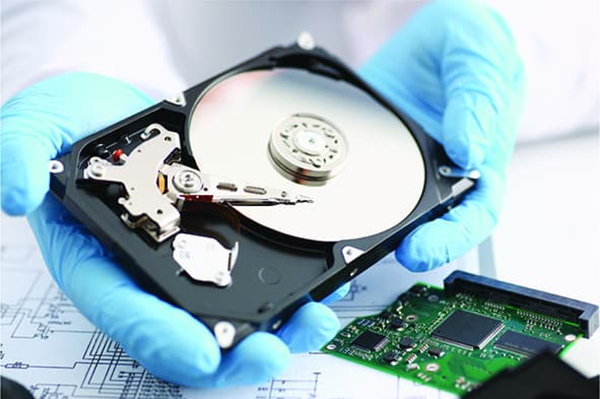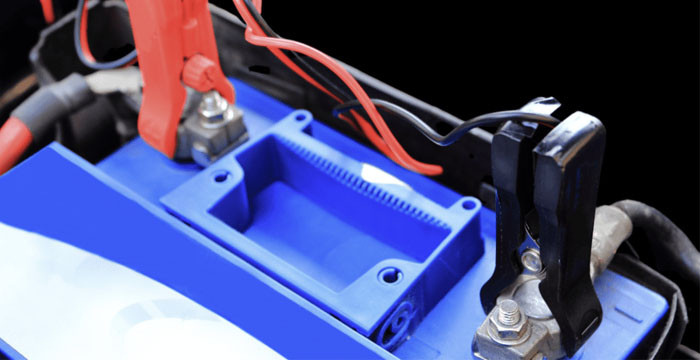At some point in our lives, we have all experienced the sinking feeling that comes with accidentally deleting a file or losing access to important data. Whether it’s a word document, family photos, or anything in between, the loss of digital information can be devastating. For businesses, data loss can mean a loss of productivity, revenue, and even customers. For individuals, it can mean the loss of cherished memories. In either case, it is important to know that there are options available for data recovery in Calgary. In this blog post, we will explore the different data recovery options available in Calgary so that you can be prepared in the event of an emergency. We will also dispel some common myths about data recovery so that you can make an informed decision about what is best for you.
What is Data Recovery?
It is the process of retrieving data from a damaged or corrupted storage device. It can be used to recover data from a variety of storage devices, including hard drives, SSDs, USB flash drives, and SD cards. There are a few different methods that can be used for data recovery, depending on the extent of the damage to the storage device. If the damage is minor, data can often be recovered using software that specializes in repairing damaged files. However, if the damage is more severe, it may be necessary to send the storage device to a professional data recovery service.
Whether you're dealing with a minor problem or a major one, data loss can be devastating. But with the right tools and techniques, it is often possible to recover at least some of your lost data.
How does Data Recovery Software work?
When it comes to data recovery, the software is your best friend. This software can help you recover lost or deleted files from your hard drive, external drive, or even a memory card.
So, how does this software work? Essentially, the software scans your drives for any lost or deleted files and then attempts to recover them. The process can vary depending on the software you use, but generally speaking, it’s a fairly straightforward process.
Of course, not all this software is created equal. Some are better than others at recovering certain types of files or from certain types of drives. And some data recovery software is more user-friendly than others.
If you’re looking for data recovery software, be sure to do your research to find the best option for your needs.

The Most Typical Causes Of Data Loss
There are many potential causes of data loss, but some are more common than others. Here are the most typical causes of data loss:
1. Hardware failure: This is one of the most common causes of data loss. Hard drives can fail suddenly and without warning, leaving you without access to your data.
2. Accidental deletion: We've all done it - accidentally delete a file or folder we didn't mean to. Once it's gone, it's often very difficult to recover that data.
3. Malware: Malicious software can wreak havoc on your computer, causing all sorts of problems including data loss. Be sure to install reliable anti-virus software and keep it up-to-date to help protect against this threat.
4. Power outage: A power outage can cause data loss if you're not properly prepared for it. Be sure to save any open files frequently and have a backup system in place in case of power outages or other unexpected shutdowns.
5. Natural disasters: Floods, fires, and other natural disasters can destroy physical hard drives and other storage media, resulting in complete data loss. Again, having a proper backup system in place is essential to protecting your data from this type of disaster.
Best Data Recovery Services in Calgary
There are many data recovery services in Calgary, but finding the best one can be tricky. Here are the best data recovery services in Calgary:
1. PC-Matic Data Recovery Services: PC-Matic is a renowned data recovery service provider with over 25 years of experience. They offer a wide range of services including hard drive recovery, RAID recovery, and tape recovery. They have a team of highly skilled and experienced engineers who can recover your data quickly and efficiently.
2. Recover My Files Data Recovery Services: Recover My Files is another leading data recovery service provider with over 15 years of experience. They offer a wide range of services including hard drive recovery, RAID recovery, and tape recovery. They have a team of highly skilled and experienced engineers who can recover your data quickly and efficiently.
3. Stellar Data Recovery Services: Stellar is a leading data recovery service provider with over 10 years of experience. They offer a wide range of services including hard drive recovery, RAID recovery, and tape recovery. They have a team of highly skilled and experienced engineers who can recover your data quickly and efficiently.
4. Kernel Data Recovery Services: Kernel is a leading data recovery service provider with over 5 years of experience. They offer a wide range of services including hard drive recovery, RAID recovery, and tape recovery. They have a team of highly skilled and experienced engineers who can recover your data quickly and efficiently.
Choosing A Data Recovery Provider
There are a few things to consider when choosing a data recovery provider. Below are four key factors:
1. Experience: Data loss can be a very stressful experience. You want to choose a provider with extensive experience in data recovery so you can be confident they will do everything possible to recover your data.
2. Services: Some providers only offer basic services while others offer more comprehensive packages that include things like data backup and disaster recovery planning. Make sure you know what services are included in the package you're considering so there are no surprises later on.
3. Cost: Data recovery can be expensive, so it's important to get quotes from several different providers before making a decision. Be sure to compare apples to apples, though, as some providers may include additional services in their quotes that others do not.
4. Location: If your data loss is the result of a physical disaster like a fire or flood, it's important to choose a provider that has a clean room facility nearby. This way, your data can be recovered as quickly as possible and minimize the risk of further damage.
What are the 4 types of Data Recovery?
It is the process of retrieving data from damaged or inaccessible storage media. There are four main types of data recovery: file recovery, database recovery, partition recovery, and drive recovery.
File recovery is the process of retrieving individual files or groups of files from damaged or inaccessible storage media. This type of software is often used to recover lost or deleted files, or to repair corrupted files.
Database recovery is the process of retrieving data from a damaged or inaccessible database. This type of software is often used to repair databases that have been corrupted or damaged by software errors, hardware failures, or power outages.
Partition recovery is the process of retrieving data from a damaged or inaccessible partition on a storage device. It is often used to repair partitions that have been corrupted or damaged by software errors, hardware failures, or power outages.
Drive recovery is the process of retrieving data from a damaged or inaccessible hard drive. This is often used to recover data from drives that have been corrupted or damaged by software errors, hardware failures, or power outages.
Post Comment
Be the first to post comment!



